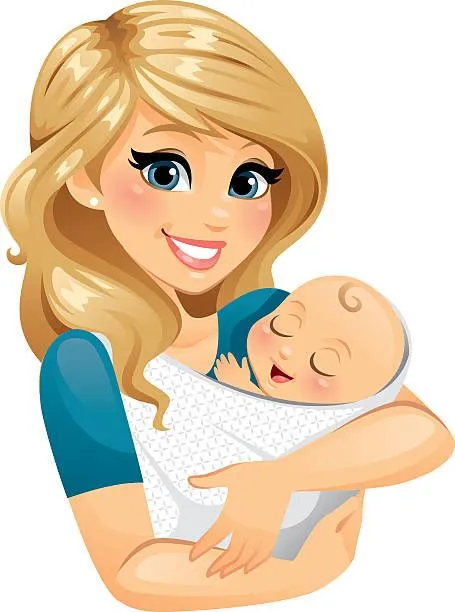Greetings, readers! I am back after a lengthy break and that was due to my never-ending exams. Today, I will spread some light on the topic of love as you already know from the title I am talking about oxytocin "The Love Hormone". In this blog, I will be explaining what Oxytocin is. Why it's called the love hormone and its other major function, hoping it would be knowledgeable for you.
WHAT IS OXYTOCIN?
Let's first understand what Oxytocin is. The term is widely used medically as well as non-medically. Whenever we have to explain deeply about love, relations, and bonding we have to take the assistance of this term. So, Oxytocin is an oligopeptide (oligopeptides are building blocks of protein containing between 2 to 20 amino acids in their chain) hormone. It is produced in the hypothalamus whereas, it is stored and released from the anterior pituitary glands. These two are the tiny but vital parts of the brain that are responsible for the formation and release of other important hormones in our body also like Growth hormone, thyroid hormone, etc.

https://thypix.com/en/beautiful-images-of-hearts/
CUDDLE HORMONE:
Now let's discuss its most fascinating role in our love, relationships, bonding, and positive social interaction. Oxytocin has other names too, like the love hormone, the bonding hormone, and the cuddle hormone.
Whenever two individuals touch, cuddle or come in physical contact with each other there is a release of oxytocin which act on our limbic system(part of the brain that regulates our emotions and social behavior) and this action leads to the release of neurotransmitters like serotonin and dopamine which creates a sense of pleasure and bonding, reduces stress and anxiety and increases trust social cooperation.

https://www.vecteezy.com/
STRENTHENS THE MOTHER-BABY BOND:
It has an important role in the milk letdown process, When a mother feeds her child there is a release of oxytocin in the mother that makes the mother sensitive to her baby's cry and agony and ultimately increases love for her child. That's why it is quoted by Doctors also that those mothers who feed their child has a strong bond with their infants and can better understand them as compared to non-feeding mothers.
LABOUR INDUCTION:
During the time of labor, there is a continuous release of oxytocin which acts on the smooth muscles of the uterus and causes it to contract continuously hence helping in delivering the child.
DEFICIENCY OF OXYTOCIN, CAUSE AND ITS EFFECTS
Until now we have discussed the amazing functions of Oxytocin, now I will talk about the causes of its deficiency and what happens if someone has a deficiency of this hormone. There are many causes of its deficiency some are listed below:
1.Trauma, infection, or tumors of the pituitary gland and hypothalamus can lead to an absolute deficiency of this hormone.
2.Chronic stress also interferes with its release because during stress our Cortisol( stress hormone) levels are high and cortisol reduces the release of oxytocin.
3.Genetics also affects its release as some people have a genetic predisposition to low oxytocin levels.
- Drugs such as opioids and antidepressants also interfere with the normal release of oxytocin levels
5.Aging also reduces the natural level of oxytocin production.
There are other causes too which include a lack of social interaction. All these factors can badly affect one's physical as well as mental health. A deficiency of oxytocin during labor can results in difficulty during childbirth and in labor induction and its decreased amount also causes hindrance in the milk letdown process in feeding. Its deficiency is also responsible for psychiatric disorders like social anxiety, depression, and lack of trust and bonding. It can become a trouble in your sexual life too.
TREATMENT:
The treatment of oxytocin deficiency is done according to the underlying causes:
Hormone Replacement Therapy:
For those women who have delayed labor or have past their due date or conditions under which the baby needs to be delivered sooner, we give hormone replacement therapy in which exogenous oxytocin is administered.
Lifestyle Changes:
We don’t give hormone replacement therapy in all cases of oxytocin deficiency. Sometimes doctors advise lifestyle changes such as exercise and a healthy diet and behavioral interventions such as positive social interactions and mindful practices. These all have shown an improvement in endogenous oxytocin production.
CONCLUSION:
Finally, I would say that oxytocin is a complex hormone and it is not completely understood but it is best known for its role in labor induction, milk ejection, and in social bonding, empathy, and trust. According to researchers, it has a wide range of psychiatric, behavioral, and physiological effects but the actual mechanism through which oxytocin does all this is not exactly understood yet and several kinds of research are in the process to unveil this mystery.
I will conclude my today's blog here. I am looking forward to your suggestions regarding this article and also tell me if you want to read me on some specific topic.
THANKS.
